12 Software Development Trends in Real Estate Industry to Look at in 2023
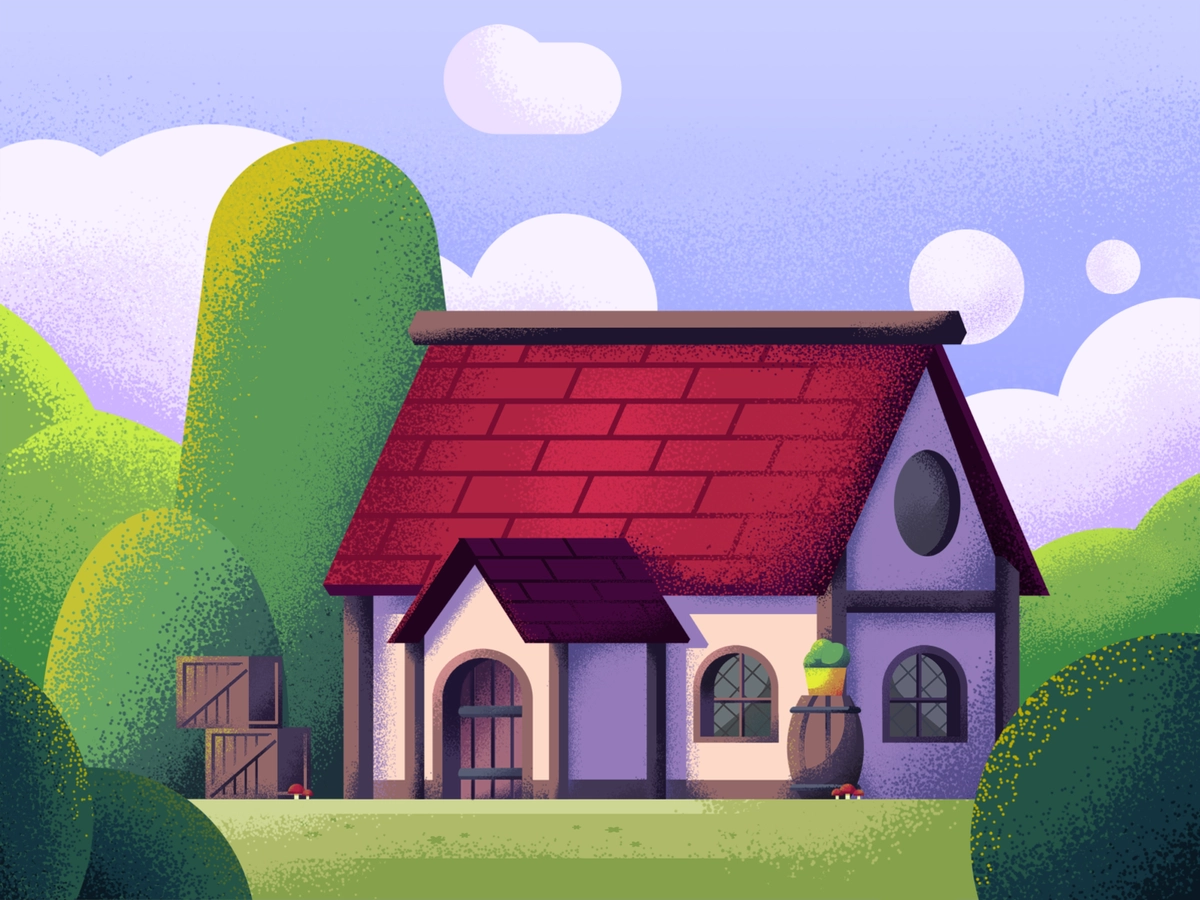
Created by Ana Mitaishvili
The real estate industry has been through many ups and downs in the last ten years. With each year, it becomes more technologically advanced. The last three-four years have changed our world permanently.
Just ten years ago, financial and property industries were a synonym for tech stability and stagnation — they remained almost the same as back in the 80-the 90s. Since then, the situation has changed dramatically.
According to Forbes, 2021 was a record-breaking period for the real estate industry. Proptech (property technology) market has grown to over 8,000 companies, compared to less than 2,000 only ten years earlier. Crowdfunding and co-investing platforms have lowered the entry barriers.
That’s why it’s vital to keep track of all proptech trends. It applies to all real estate market parties: developers, big and small companies, independent investors, homeowners, and even renters. New technologies can create a fair and transparent market for everyone involved.
But what can happen to this industry this year? We gather the 12 most significant real estate tech trends of 2022-2023. Most of them will become a new standard in less than three-five years.
How Technology Can Change Real Estate
Finding an affordable apartment for rent, or a house to buy is becoming more and more challenging. The average home price in the US continues to grow, despite salaries staying almost the same. The national median rent increased by a record-setting 17.6 percent over the course of 2021. Gen Z (the most tech-driven generation) is predicted to spend more than any other generation on rental services in their lifetime.
The new tech-savvy generation of homeowners and tenants is likely to rely on technology to cope with those issues. The rising number of mature proptech startups testifies to the already growing demand for tech solutions in this industry. We also see a rising level of tech penetration in the classic property-related businesses: real estate agencies, renovation crews, utility services, and more.
The advance of digital technologies also fosters co-investment in real estate. Co-investment businesses are unlocking new commercial real estate opportunities: young people could start an investment career even at college. A report by Preqin illustrates the rising popularity of this trend: 63% gladly offer co-investment rights to their investors, and 25% are considering doing this in the foreseeable future.
This means we will see even more renting and co-investment startups. Companies must offer excellent customer experience to be ahead of the pack in the competitive market. Cutting-edge technological solutions make this task easier. Thus, following the tech trends in real estate is a must for a modern business.
12 Main Real Estate Tech Trends That Will Change The Property Market in 2023
Proptech is still a young industry, so what we see now is the origins of a new attitude to property. Today it’s not only some physical place but more like a digital asset that you can control and adjust with one click. That’s why you’ll see a lot of data-related trends.
Someone may even say that the property market looks today like a real-life Sims game. And it’s not so far from the truth. Development companies provide VR tours, homeowners remotely change the utilities, while real estate businesses manage all that information and predict tenant behavior.
In this article, we will dive into real estate app development trends that will soon become an integral part of the real estate market.
Artificial Intelligence and Big Data
Created by Vladislav Olshevsky
Real estate will be one of the most tech-driven industries in 2023. But where there is the tech, there are tons of data. That’s when artificial intelligence comes in handy.
AI-based tools calculate risk assignments, predict market trends, provide evaluations, improve landlord and tenant experiences, and more. Those tools can cope with a vast amount of data to give useful insights. They also provide a better and deeper understanding of ongoing processes and how they can affect the client.
AI algorithms can help you choose the best agents for your business. They can show the property’s resale value and how a seller could increase it with minimal costs. But if you want AI to make accurate predictions, provide as much customer data as possible. AI tools will analyze human behavior and give your business insights.
The Internet of Things

Created by Fireart
IoT is one of the biggest tech trends. Naturally, it will find its place in the real estate industry. IoT devices can make people’s lives more comfortable. For example, they can turn on the lights, heat the food, and fill the bath while still on the way home. It can save up to a few hours daily and increase property value.
IoT motion detectors and cameras check the environment to keep your home secure. Service companies can use IoT sensors to track utilities. IoT can measure the water pressure and heating, build usage maps, etc.
Those sensors could also help to build even more user-friendly homes. They can create heat maps of public space usage: elevators, gyms, libraries, and offices. Experts can use this information to upgrade existing facilities and make new buildings more tenant-friendly.
VR, AR, and Immersive Technologies


Touring many properties is still a common practice in real estate, but it takes a lot of time. Immersive technologies have become one of the most popular, customer-friendly, and technology-driven ways to check up on homes and apartments. Potential clients can “visit” numerous locations without leaving the couch.
As of early-mid 2023, many real estate firms provide virtual tours of their homes. It allows clients to see many properties in 1-2 hours.
VR tools also have become a salvation for renovation companies. Agents show potential clients different furniture setups, so they can envision future properties. Immersive technologies give more freedom in visualization. Designers can offer potential customers as many edits and options as they want.
VR and AR technologies make the buyer’s expenses more exciting, immersive, and fun. And it leads to an organic sales boost, which makes investing in those technologies a great choice. VR implementation is costly, but it will pay off.
Drones Outside and Inside Houses
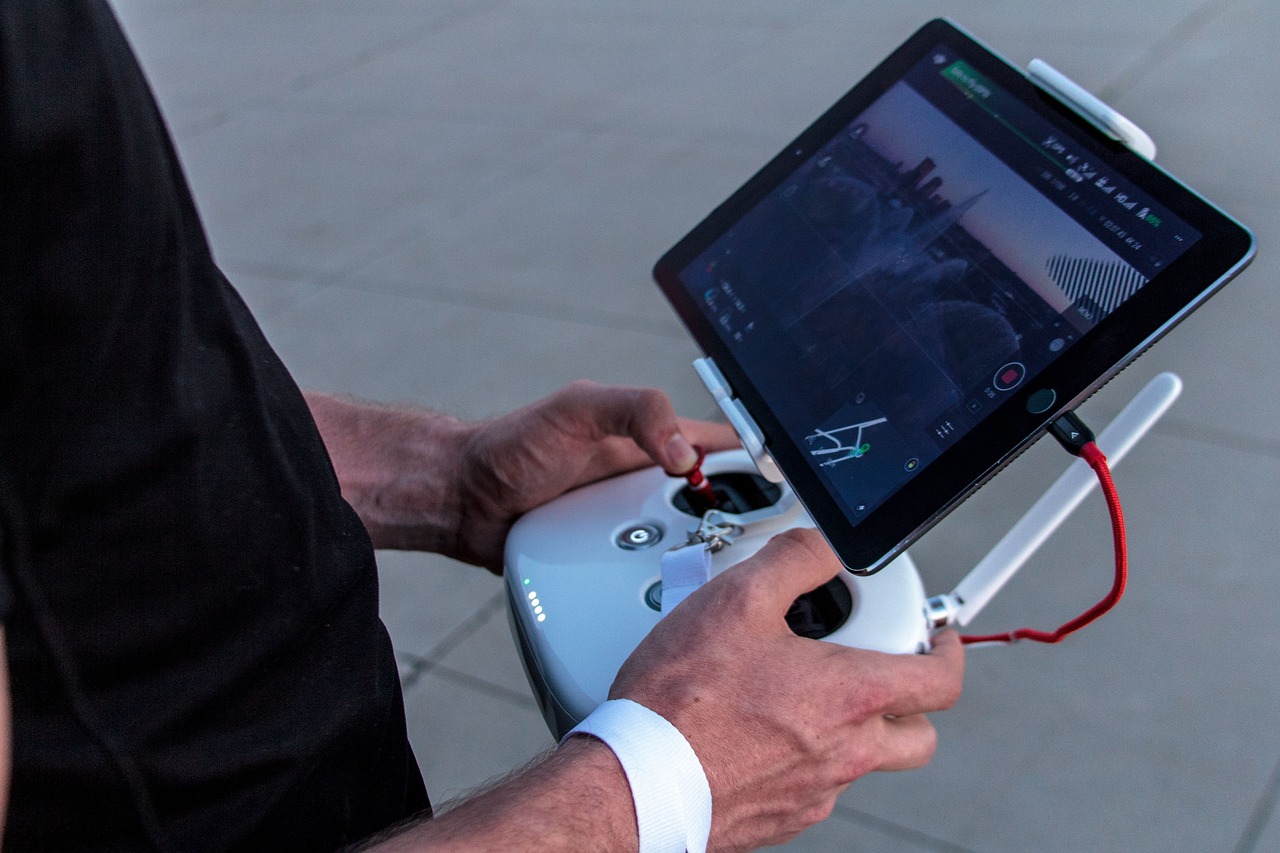
People like to examine the house from all angles before buying it. VR and AR give the ability to look inside, while drones offer potential clients a bird’s-eye-view of real estate.
They also can be used for property maintenance monitoring. Mini drones can reach places that could be dangerous to people. That way, service staff can prevent more breakdowns.
Drones are already popular in the property industry. But they will become a new golden standard for real estate and utility companies. Considering how fast this technology progresses, drones may even fix various utilities like broken pipes or dirty windows.
Building Management Systems

Created by Fireart
With modern technologies, homeowners and tenants can automate almost any aspect of their homes. That includes light, heat, water usage, ventilation, and more. Building management systems make adjusting your home to your liking much easier.
A BMS measures the tiniest changes, converts this data into a suitable format, calculates possible adjustments, and transmits this information to the equipment. Moments later, tools tailor room parameters to the homeowner’s needs. Those systems work 24/7, constantly monitoring and changing parameters.
Property and Customer Management Systems

Created by Fireart
It’s easy to get lost in documentation and bills even with one house. So, it’s common to lose track of papers when you operate multiple real estate objects. In some cases, even computers can’t help businesses keep track of the documentation stored on different clouds and servers.
Documentation management has become a painful issue in the real estate market. And that’s why property management system startups spring up. Software startups develop cloud-based platforms that keep track of clients, deals, and documentation.
There are also a lot of tenant experience tools that facilitate transparency in relations between owners, landlords, and tenants. Owners don’t need to worry that a tenant damages something and leaves. At the same time, the latter can live without the fear of extra fees.
The major element of success in 2023 is to be a client-centered business. Property companies should track every interaction with current and potential clients: online and offline. Customer management tools can help with this task. They convert every interaction into digital metrics, analyze them, and provide business recommendations.
Property Aggregation Platforms
Created by Fireart
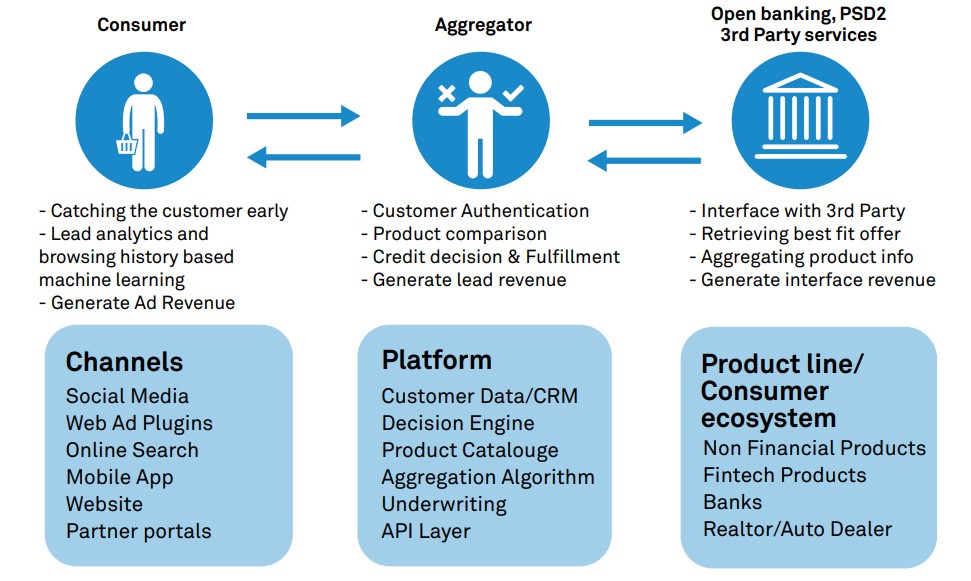
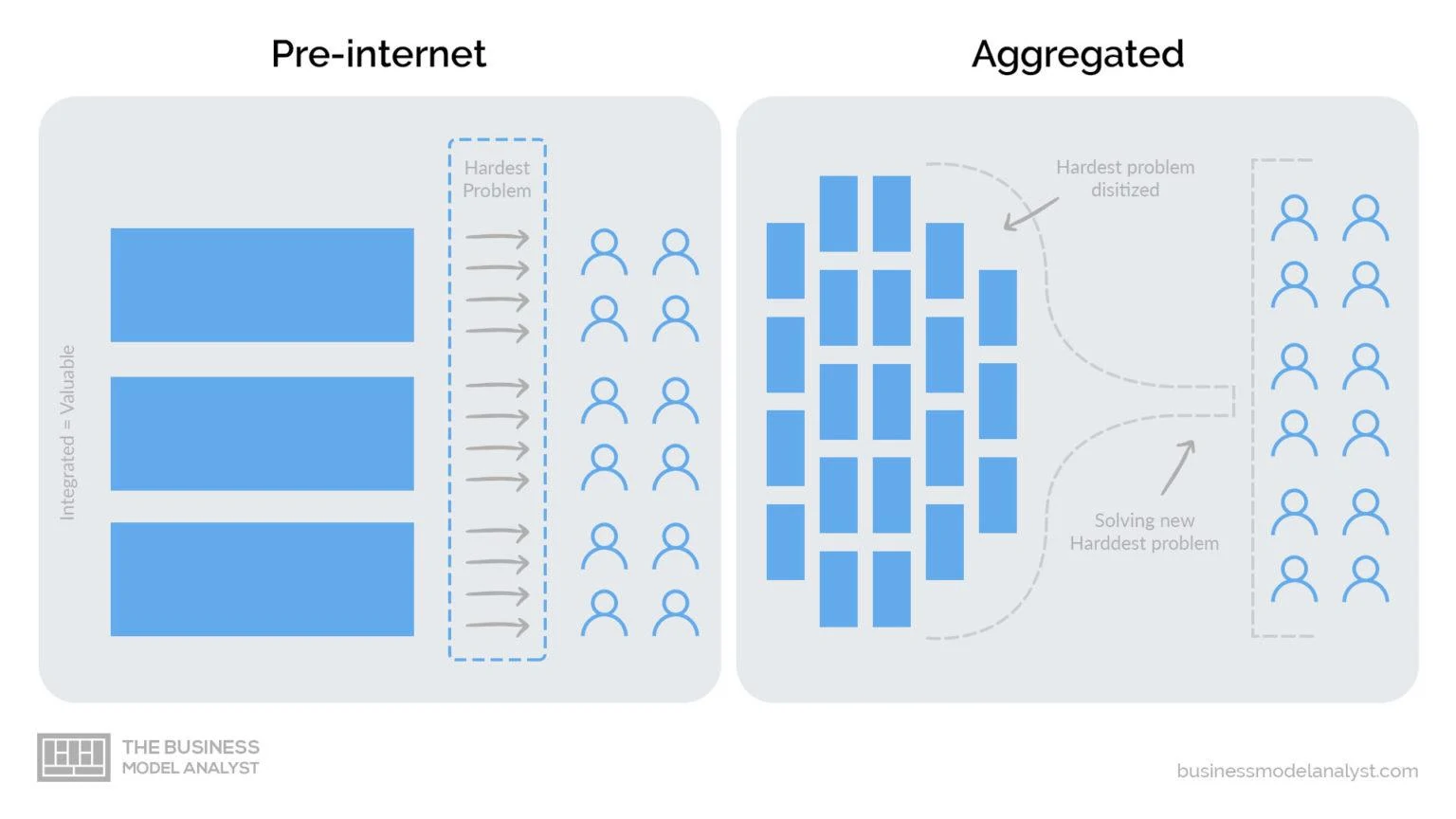 Over the last two decades, more and more businesses shifted online, and real estate is no exception to this rule. The COVID-19 outbreak boosted this process. If in the pre-pandemic period, people preferred to visit agencies and look at the catalog, then after 2020, more and more customers prefer to examine key parameters of real estate online.
Over the last two decades, more and more businesses shifted online, and real estate is no exception to this rule. The COVID-19 outbreak boosted this process. If in the pre-pandemic period, people preferred to visit agencies and look at the catalog, then after 2020, more and more customers prefer to examine key parameters of real estate online.
Many agencies have well-developed websites with many real estate options. And every house card has a 360° photo and video tour. Some even offer online VR tours, so a potential client can check new offers while staying at home/work!
Some startups aggregate property listings from various sources and visualize them. It could save even more time for potential customers. They don’t need to search different agencies, because they can see all offers in one place.
At the same time, crowdfunding and co-investing platforms democratize the real estate industry. Less than 15-20 years ago, a person had to have at least $100-200K to start investing. But today, anyone can start a career as an investor, even students with $500-700 in their accounts.
Predictive Analytics

Created by Fireart
Tech companies provide tools to analyze a massive torrent of data, converting it into valuable insights. They give those instruments to property businesses, so they can find patterns and forecast future trends.
Predictive analytics can help to create listings based on the user’s interests. Platforms like Zello are already implementing this technology. They use predictive data analysis to find houses with low acquisition costs and potentially high resale value. Shortly after, they buy those homes for reselling and renting purposes.
Zello often uses predictive modeling to find an appropriate price for a house. It simplifies the buying/renting process for all parties involved. At the same time, prediction tools align performance metrics to business goals.
Blockchain and Data Security
Created by Fireart
The other major problem with real estate investment is that younger generations are less likely to get involved. They don’t want to invest in real estate because they don’t feel secure. They are worried that hackers may steal sensitive information from investment services.
Moreover, companies have to adapt to the constantly increasing amount of data and government regulations. Startups also offer software solutions to encrypt data from IoT devices and protect houses from cyber-attacks.
Blockchain can bring some relief to anyone who is affected by those challenges. Smart contracts are blockchain-based contracts that store every detail of the transaction. It removes third-party involvement and makes the process transparent, bringing security to all parties involved. It’s impossible to hack a blockchain, so all data is safe.
Moreover, tokenization also gives the ability to invest small sums of money in the form of tokens. Thus, even full-time college students can start investing with $300-500 in their pockets. It’s huge democratization of the real estate industry, and it is more appealing to young millennials and Gen Z.
Conversational chatbots
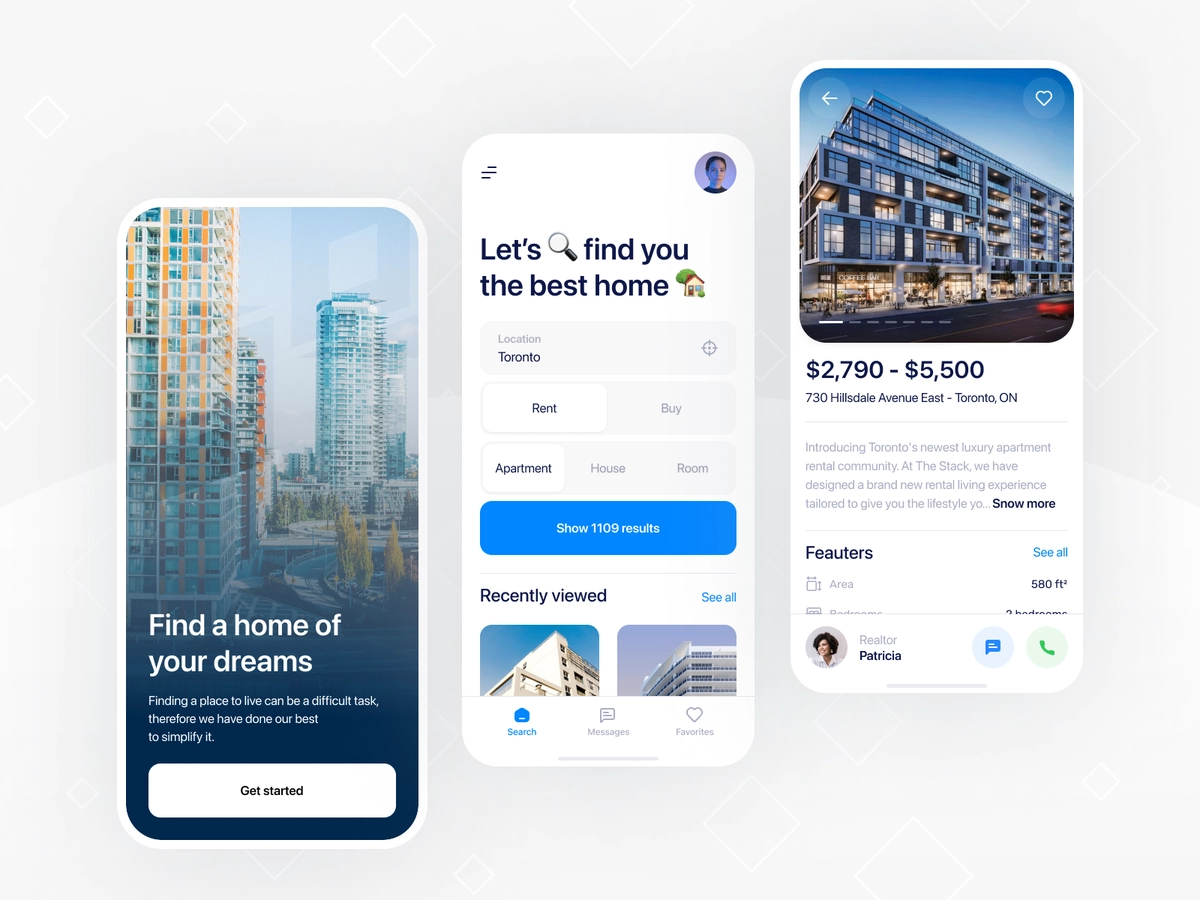
Created by Fireart
Created by Fireart
Modern AI-based chatbots can pull out a conversation, like agents. Chatbots can answer simple questions and even some complex topics. Sophisticated bots could learn from the agent’s answers, and users can get the reply 24/7.
Businesses could integrate them into popular messengers and gamify the user experience. Chatbots are easily scalable, so companies can add new features to this tool anytime. It’s a far more cost-effective decision than outsourcing help to a customer support agency.
Moreover, it excludes the human factor and the possibility of agent error. A chatbot doesn’t get tired or sleepy, it doesn’t need a salary or vacation. It will give immediate friendly answers to the user even at night or on holidays.
Human interactions are crucial for the real estate industry. Thus, conversational chatbots will become one of the biggest software development trends in real estate in 2023-2025.
Hyper personalized messages
Created by Fireart
Chatbots, big data, and AI-based tools help businesses to understand their customers better than they used to in the 2010s. Companies can create personalized messages and make content that suits the needs of their customers.
It builds trust between the business and the user. So, they are highly likely to become loyal clients who like to promote this company for free. Such customers are known as “brand advocates.” Their presence is a major green flag for potential clients.
Cloud integration
Created by Fireart
Agents and realtors are always on the move, traveling, filming, and promoting. So they need access to services that store all information in one place.
Cloud services can keep agents updated about clients’ needs, preferences, and desires. They make the work of the architects, agents, and marketing team easier. With their help, real estate professionals can share information about the property and potential clients with each other.
Cloud services enhance business scalability. Since everything is in the cloud, the company can move its offices to any part of the world. However, in that case, company executives need to take care of cyber security and create a department responsible for it.
Mobile Apps and Mobile-First Websites
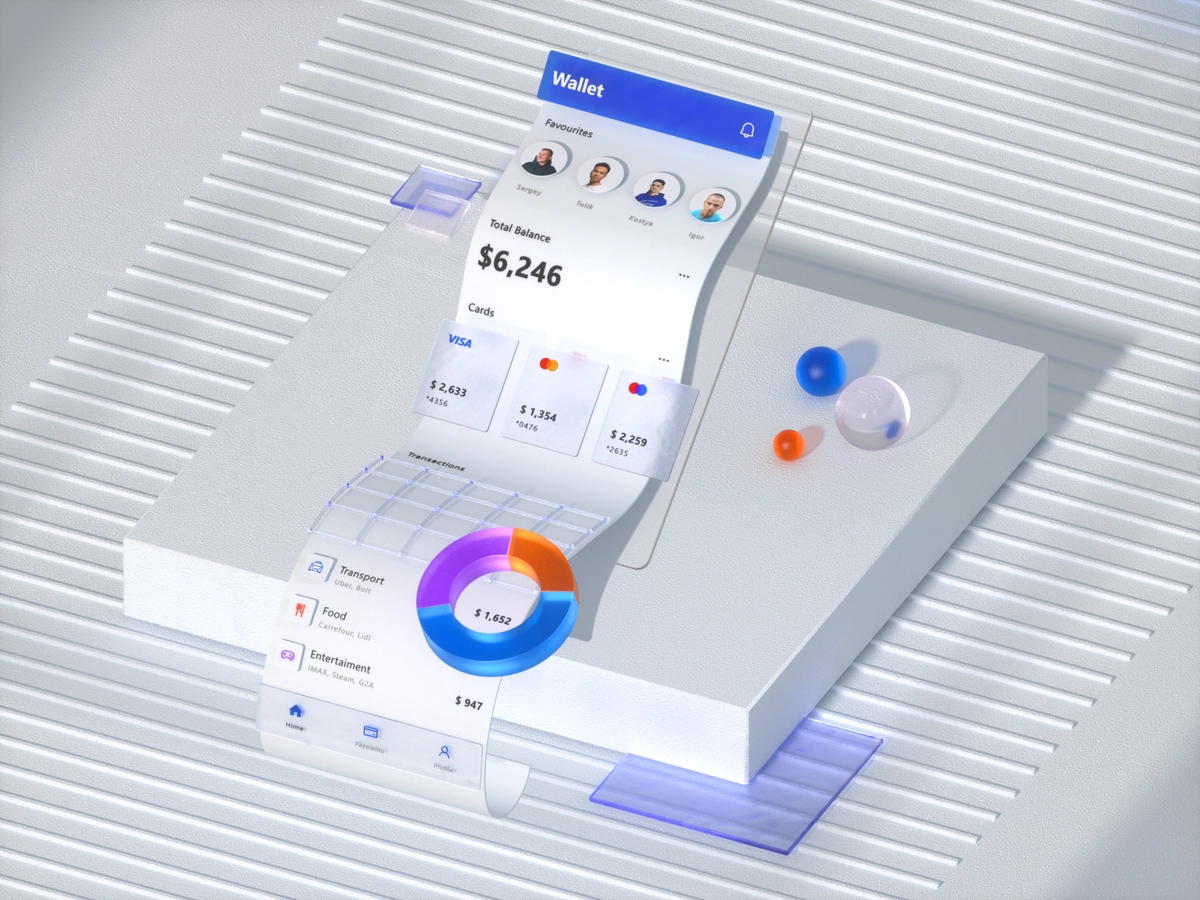
Created by Fireart
A decade ago, mobile internet was slow and inconvenient. But with the advance of 4G and 5G, it has become indispensable. Today users are more likely to browse the web from mobile devices rather than PCs. In 2017, Google announced that it would be evaluating the mobile version of the website first.
It is crucial to have a mobile version of the website and mobile application both for iOS and Android. It will help you build a reputation as a customer-friendly business.
The Future of Software Development Trends in Real Estate
Created by Fireart
Proptech is a young industry that will face significant growth in the next few years. So, it’s vital to be among the first who implements new technologies in the business. Those businesses will get the most benefit, driving new clients and making them brand advocates.
The AI, Big Data, and Blockchain startups will automate various segments of the property industry. Virtual tours will become one of the most popular ways to check out homes. We will see how renting and buying platforms implement them. Some even may create VR tours where potential clients could see a property while relaxing on a couch. Sotheby luxury real estate is already providing virtual tours for iPhone and Android users with VR headsets.
But at the same time, everyone should be prepared for even more competition in the real estate market. Multiple co-investment ventures will spring up as real estate investment becomes more accessible.
Conclusion
Technology and real estate will become more interlinked in 2023. It’s important to keep an eye on the latest trends, so your business can benefit from them. Considering the democratization of the property market, it will be necessary to stay ahead of the competition.
If a real estate business wants to be prosperous, it should adopt those trends as early as possible. Employing a real estate digital design and software development company that does the heavy lifting for you is a great start. Contact us, and our experts will help your company get property management software development service and keep in step with the time!




















